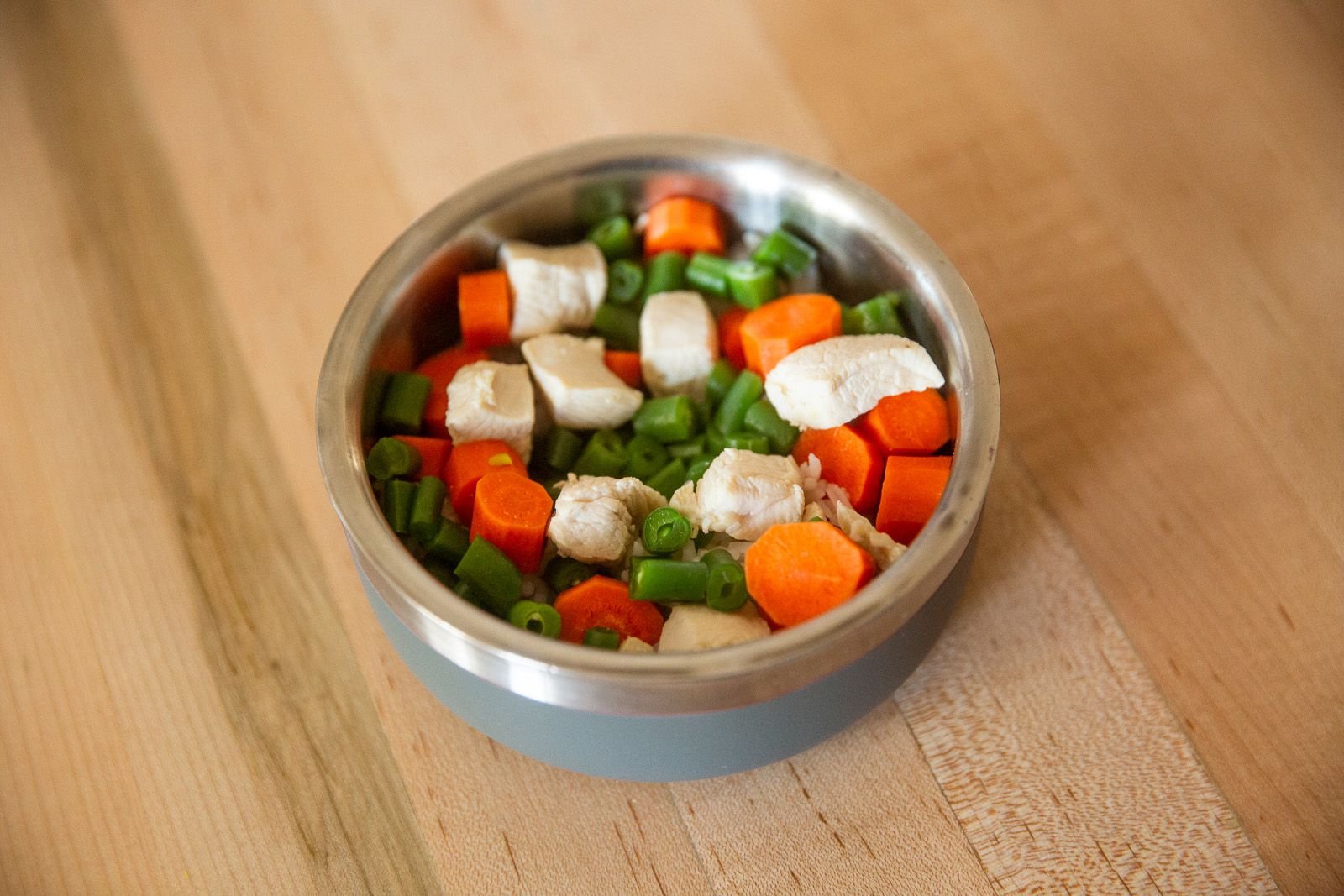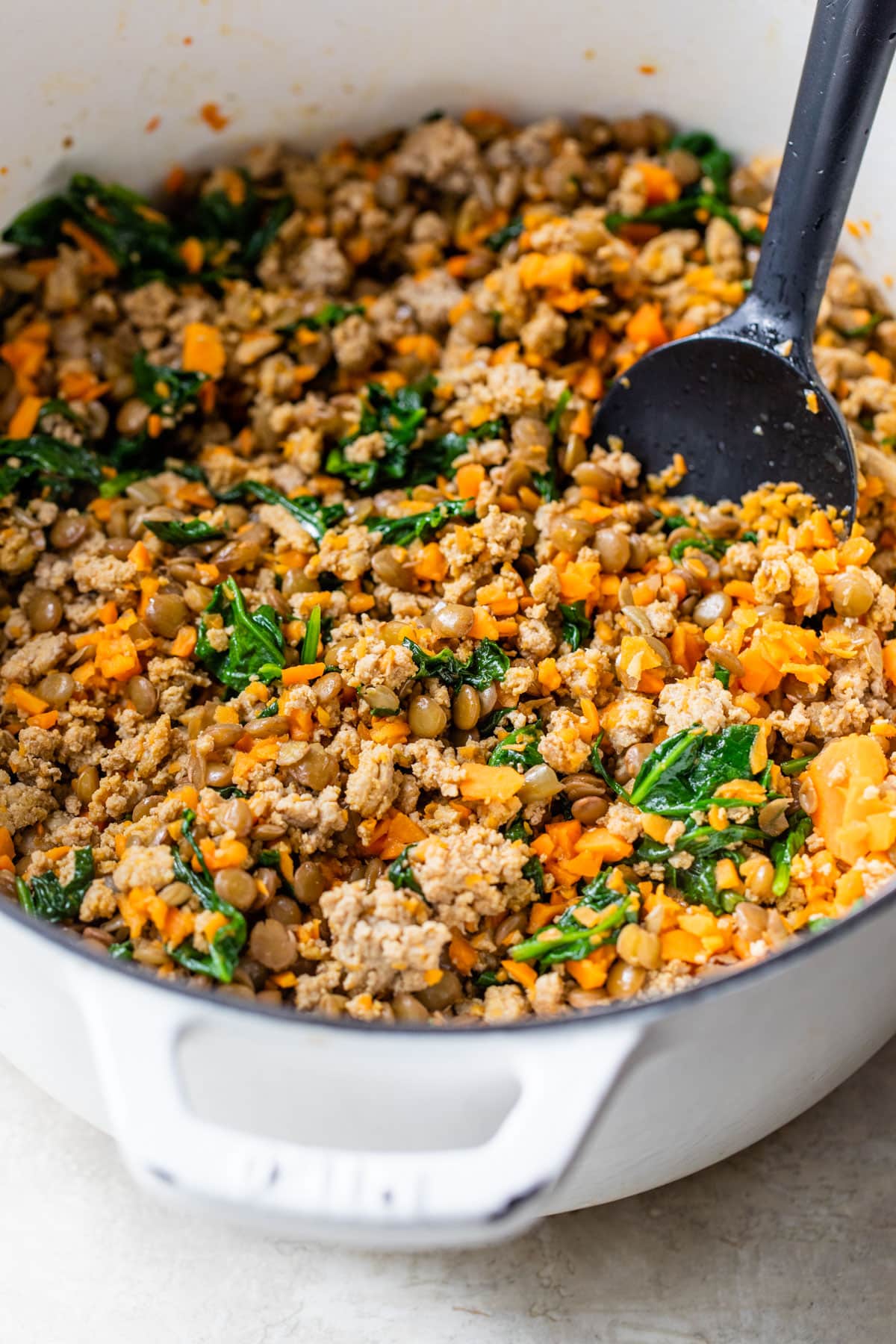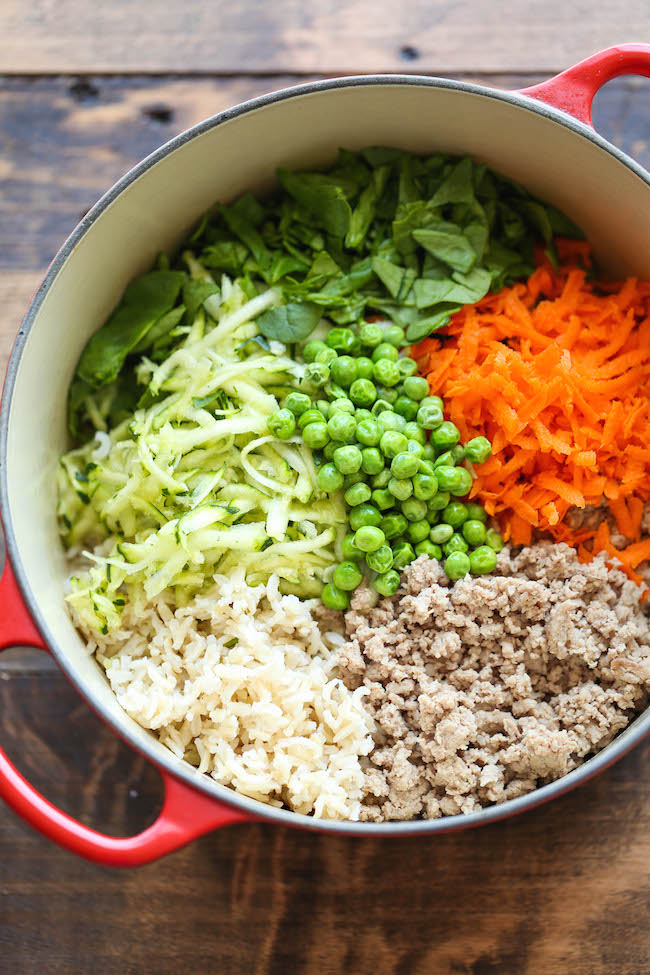
Preparing homemade puppy food is a simple process that ensures your puppy gets the nutrition it needs.

Nutritional Requirements For Homemade Puppy Food
Preparing homemade puppy food requires careful attention to the nutritional requirements of growing dogs. With a well-balanced diet rich in protein, healthy fats, and essential vitamins and minerals, you can provide your puppy with the nourishment they need for optimal growth and development.
Puppies have specific nutritional needs to be met to ensure healthy growth and development. While commercial puppy food options are widely available, preparing homemade puppy food allows you to control the ingredients and provide the highest quality nutrition for your furry friend. To create a well-balanced, nutritious homemade puppy food, it is crucial to understand the specific nutritional requirements puppies need to thrive.
Understanding The Nutritional Needs Of Puppies
Puppies require a balanced diet that combines essential nutrients to support their rapid growth and development. Some crucial nutrients puppies need include proteins, carbohydrates, fats, vitamins, minerals, and water. These nutrients play vital roles in their development, from their immune system to bone and muscle growth.
Essential Nutrients For Healthy Growth
To provide your puppy with a complete and balanced diet, you must ensure they receive the right proportions of essential nutrients. Here are the key nutrients puppies need for healthy growth:
- Proteins: Essential for building and repairing tissues, proteins are the building blocks for muscle growth and development.
- Carbohydrates: Provide energy for puppies’ active lifestyles and support brain function.
- Fats are essential for healthy skin and coat and aid in absorbing fat-soluble vitamins.
- Vitamins: Necessary for various bodily functions, vitamins help support a robust immune system and overall well-being.
- Minerals are crucial in bone development, nerve function, and maintaining the body’s electrolyte balance.
- Water keeps puppies hydrated, aids digestion, and helps regulate body temperature.
Calculating The Right Proportions Of Nutrients
When preparing homemade puppy food, it is essential to calculate the right proportions of nutrients to ensure your puppy receives a balanced diet. Consult a veterinarian or a veterinary nutritionist to determine the specific dietary requirements for your puppy based on their breed, size, and age. They can guide you on your diet’s appropriate amounts of proteins, carbohydrates, and fats. Additionally, consider incorporating various ingredients to provide a range of essential vitamins and minerals for optimal nutrition.
By understanding the nutritional needs of puppies and carefully calculating the right proportions of nutrients, you can prepare homemade puppy food that supports their healthy growth and provides them with the best possible start in life. Remember, consult a professional to ensure your homemade puppy food plan is tailored to your pup’s needs.

Recipes And Ingredients For Homemade Puppy Food
Preparing homemade puppy food is a great way to ensure your furry friend gets the nutrition they need. It can be more cost-effective than buying commercial dog food and lets you have complete control over the ingredients. In this blog post, we will explore safe and healthy ingredients for puppies, specific recipes for different stages, and recommended supplements and additions to enhance their homemade meals.
Safe And Healthy Ingredients For Puppies
When preparing homemade puppy food, it’s crucial to use safe and healthy ingredients that provide the necessary nutrients. Here are some ingredients you can include in your recipe:
- High-quality protein sources such as chicken, turkey, beef, or fish can be the foundation of a puppy’s diet. These protein sources are not only delicious, but they also provide essential amino acids for growth and development.
- Whole grains like brown rice, oats, and quinoa are excellent carbohydrates and fiber sources. They provide energy and aid in digestion.
- Vegetables and fruits offer vitamins, minerals, and antioxidants. Add carrots, sweet potatoes, green beans, or apples to your puppy’s food for nutrition.
- Healthy fats such as fish, flaxseed, or coconut oil are essential for your pup’s brain function and coat health.
- Calcium and phosphorus are vital minerals for strong bones and teeth. You can include dairy products like plain yogurt or cottage cheese or consider supplements to meet their needs.
Specific Recipes For Different Stages
As they grow, puppies have different nutritional requirements, so adjusting their homemade food recipes is essential. Here are some specific recipes for different stages:
Puppy Food for Weaning Stage
During the weaning stage, puppies start transitioning from their mother’s milk to solid food. A recipe for this stage can include:
- Boiled chicken or turkey
- Mashed sweet potatoes
- Wheat germ
- Plain yogurt
Puppy Food for the Growing Stage
As your puppy grows, they require additional nutrients to support their development. A recipe for this stage can include:
- Lean ground beef or fish
- Cooked brown rice
- Steamed vegetables (carrots, green beans, or peas)
- Fish oil or flaxseed oil
Recommended Supplements And Additions
While a well-balanced homemade puppy food recipe can provide most of the required nutrients, certain supplements and additions can enhance their meals. Here are a few recommendations:
| Supplement/Addition | Benefits |
|---|---|
| Omega-3 fatty acids | Support brain development and promote a healthy coat |
| Probiotics | Aid digestion and boost the immune system |
| Joint supplements | Beneficial for large-breed puppies to support healthy joints |
Consult your veterinarian to determine if these supplements or additions suit your puppy’s needs.
Preparing And Storing Homemade Puppy Food
Learn how to prepare and store homemade puppy food, ensuring your furry friend gets the nutrition they need. Discover helpful tips and guidelines to create a balanced diet for your growing pup.
Preparing and storing homemade puppy food is essential to ensuring your furry friend gets the nourishment they need. By taking the time and effort to prepare their meals yourself, you have greater control over the ingredients and can cater to any specific dietary requirements or restrictions they may have. In this section, we will explore preparation guidelines and techniques, proper storage, and shelf life and provide valuable tips to ensure food safety. Let’s delve into each aspect in detail!
Preparation Guidelines And Techniques
When preparing homemade puppy food, following specific guidelines and techniques is crucial to ensure your puppy receives a well-balanced and nutritious meal. Here are some essential points to keep in mind:
- Use high-quality ingredients: Opt for fresh, organic ingredients to provide the best possible nutrition for your puppy.
- Determine the right portion size: Consult with your veterinarian to determine the appropriate size based on your puppy’s age, breed, and activity level.
- Include a variety of nutrients: Ensure that the recipe includes a balance of protein, carbohydrates, healthy fats, vitamins, and minerals essential for your puppy’s growth and development.
- Cooking methods: Some cooking methods, such as boiling, baking, or steaming, are ideal for preserving the nutritional value of the ingredients.
Proper Storage And Shelf Life
Proper storage is vital to maintaining the freshness and quality of homemade puppy food. Here are a few tips to keep in mind:
- Divide into serving-sized portions: Portion the food into smaller containers or freezer-safe bags for easy access and to avoid repeated thawing and refreezing.
- Refrigeration: Refrigerate freshly prepared food and use it within 2–3 days to prevent spoilage.
- Freezing: If you plan to store the food for an extended period of time, freezing is the best option. Ensure you label the containers with the date of preparation and use them within three months.
- Thawing: When thawing the frozen food, do it in the refrigerator overnight or using the defrost setting on your microwave. Avoid leaving it at room temperature to prevent bacterial growth.
Tips To Ensure Food Safety
To ensure the safety of the homemade puppy food, follow these essential tips:
- Practice good hygiene: clean all utensils, cutting boards, and countertops thoroughly before and after preparing the food.
- Avoid harmful ingredients: Some food items like onions, garlic, chocolate, and grapes can be toxic to dogs. Make sure to research and avoid any harmful ingredients.
- Monitor for allergies or sensitivities: Keep an eye out for any adverse reactions or sensitivities your puppy may have to certain ingredients. Consult with your veterinarian if necessary.
- Regularly discard leftovers. If your puppy doesn’t finish their meal, discard any remaining food to prevent it from spoiling or becoming contaminated.
- Observe food temperature: Always check the temperature of the food before serving to avoid any burns or discomfort to your puppy’s mouth.
By following these preparation and storage guidelines and implementing food safety practices, you can ensure that your homemade puppy food is nutritious and safe for your beloved furry friend. Take the time to prepare their meals with love and care, and you’ll be rewarded with a happy and healthy puppy!
Transitioning To Homemade Puppy Food
Discover the benefits of transitioning to homemade puppy food and provide your furry friend nutritious and delicious meals. Learn how to easily prepare homemade puppy food tailored to their specific dietary needs.
Gradual Transition From Commercial Food
Transitioning your puppy to homemade food should gradually allow their digestive system to adjust. Mix a small portion of homemade food with their current commercial food. Over a week or two, gradually increase the amount of homemade food while decreasing the commercial food ratio. This gradual transition helps prevent digestive upsets and allows their taste buds and stomach to adapt to the new diet.
Monitoring Changes In Digestion And Health
Observing changes in your puppy’s digestion and overall health is crucial during the transition. Watch for any signs of diarrhea, vomiting, or an upset stomach. Please keep track of their appetite and energy levels. If you notice any negative changes, it may indicate that the transition is too rapid or that the homemade food does not agree with your puppy’s system. Take note of these changes and adjust accordingly.
Consulting With A Veterinarian
Consulting with a veterinarian is essential before completely switching to homemade puppy food. They can provide valuable guidance and evaluate your puppy’s specific nutritional needs. They may also recommend vitamin and mineral supplements for a balanced, homemade diet. A veterinarian’s expertise ensures your precious pup’s proper development and well-being.

Frequently Asked Questions On Preparing Homemade Puppy Food
How Do I Prepare Homemade Puppy Food?
Preparing homemade puppy food is easy! Select high-quality ingredients like lean meats, vegetables, and whole grains. Cook the ingredients thoroughly and chop them into small, easily digestible pieces. Mix them and serve them in the right portion size for your puppy’s age and weight.
Can I Feed My Puppy Only Homemade Food?
While you can feed your puppy homemade food, ensuring a balanced diet is essential. Consult with a veterinarian to ensure your pup gets all the necessary nutrients. Homemade food should include protein, carbohydrates, fats, vitamins, and minerals, similar to commercial puppy food.
What Ingredients Should I Avoid While Preparing Homemade Puppy Food?
Certain ingredients can be harmful to puppies. Avoid onions, garlic, chocolate, grapes, raisins, and foods high in salt or sugar. These can cause digestive issues, toxicities, or other health problems in puppies.
How Often Should I Feed My Puppy Homemade Food?
Puppies have specific feeding needs based on their age and breed. Generally, feed puppies three to four times a day until they reach four months old. You can reduce it to two meals daily from four months to one year.
Consult with your vet for a personalized feeding schedule for your puppy.
Conclusion
To sum up, preparing homemade puppy food is a rewarding way to provide your furry friend with a nutritious and healthy diet. Following these simple steps and guidelines ensures that your puppy receives all the essential nutrients it needs to thrive.
Remember to consult your veterinarian for personalized advice and monitor your puppy’s health as they grow. With a little effort and care, you can create homemade meals that will keep your puppy happy and healthy for years.
